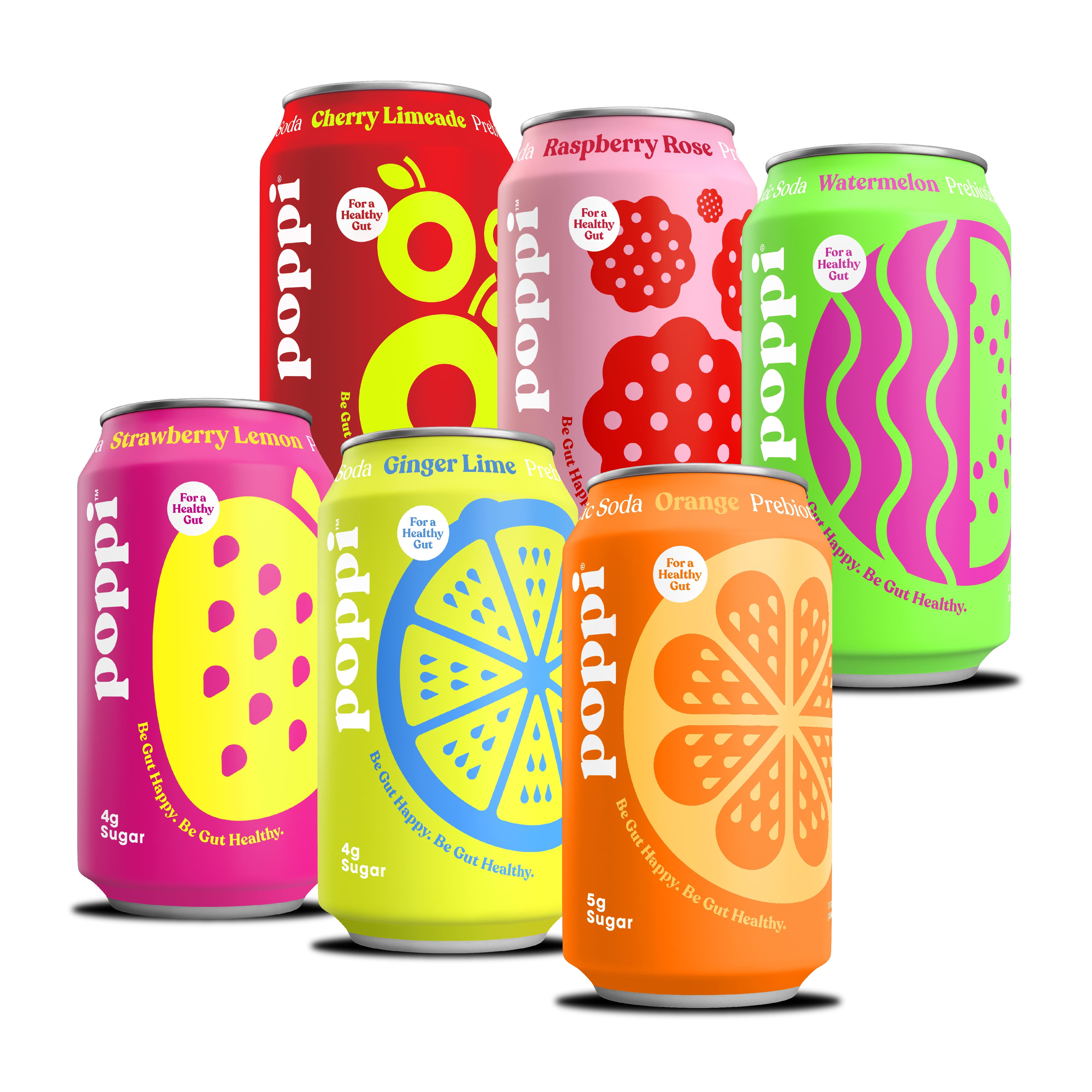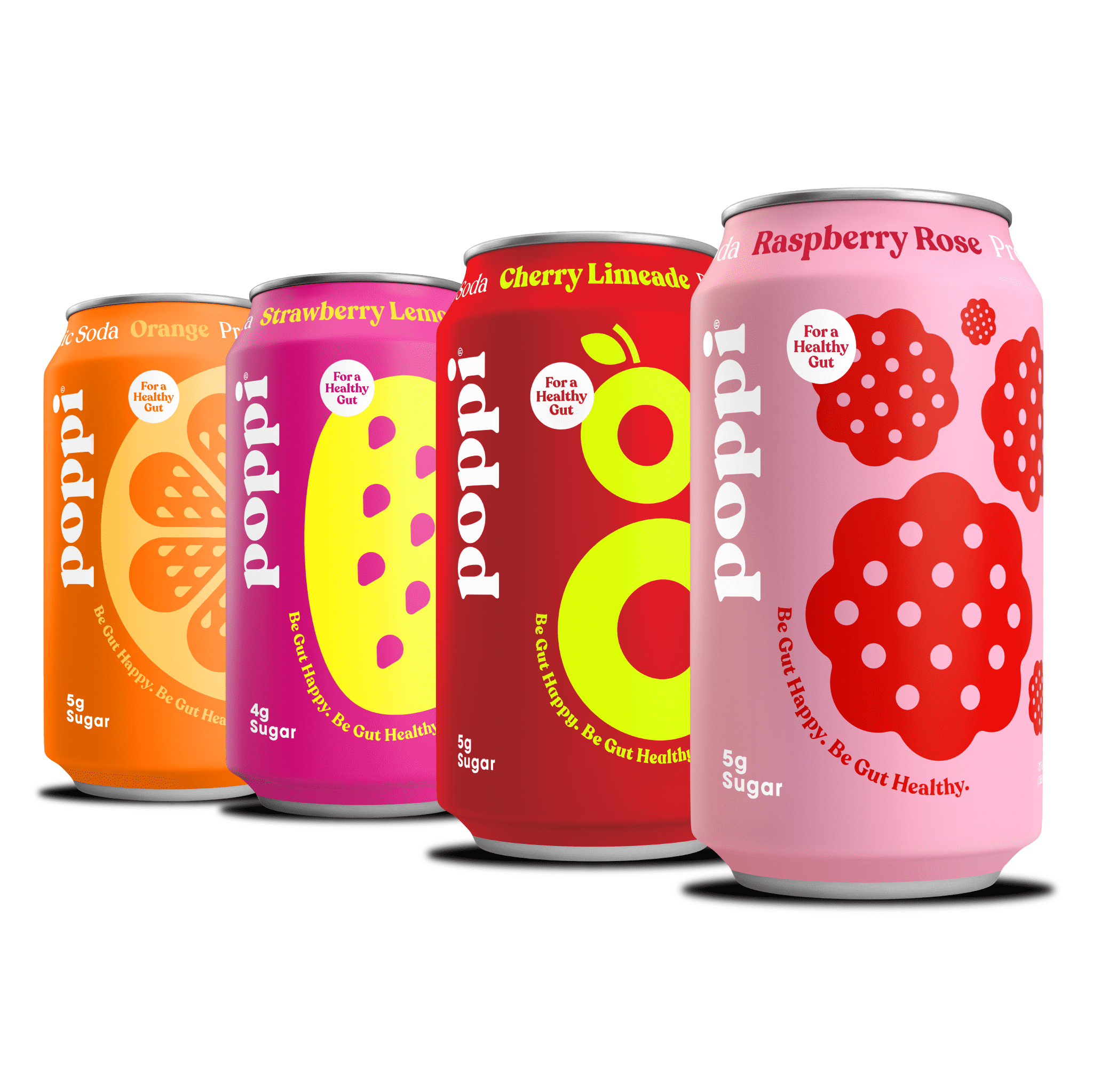Legal Basis of the Lawsuit

Poppi soda lawsuit – The lawsuit against Poppi soda alleges that the company violated several laws and regulations, including the Food, Drug, and Cosmetic Act (FDCA), the California Consumer Legal Remedies Act (CLRA), and the California Unfair Competition Law (UCL).
The recent Poppi Soda lawsuit, alleging false advertising of its “prebiotic” content, has brought to mind the high-profile case of Amanda Knox. Knox, an American student studying in Italy, was wrongfully convicted of murder in 2007, a miscarriage of justice that sparked international outrage.
Similarly, the Poppi Soda lawsuit highlights the need for consumers to be vigilant about the accuracy of product claims, lest they become victims of corporate deception.
The plaintiffs argue that Poppi soda is misbranded because it is labeled as a “health drink” but contains added sugars, which are not considered healthy ingredients. They also argue that the company’s marketing claims are deceptive because they suggest that Poppi soda can improve health and well-being, when there is no scientific evidence to support these claims.
The Poppi soda lawsuit, alleging false advertising of prebiotic content, has drawn attention to the growing popularity of gut health-focused beverages. In this context, Sunita Williams , a renowned astronaut and advocate for space exploration, has also highlighted the importance of maintaining gut health during space missions, emphasizing the potential impact of gut microbiota on overall well-being, including immune function and cognitive performance.
The Poppi soda lawsuit underscores the need for transparency and accuracy in labeling food products, particularly those making health claims, to ensure consumers can make informed choices.
The FDCA
The FDCA prohibits the misbranding of food products. Misbranding includes making false or misleading statements about the product’s ingredients, health benefits, or other characteristics.
Poppi Soda’s recent lawsuit has sparked a debate about the safety of its ingredients. Some consumers have expressed concerns about the use of certain chemicals, while others have pointed to the company’s rotten tomatoes score as evidence of its overall quality.
The lawsuit alleges that Poppi Soda contains harmful ingredients that can cause health problems, and the company has denied these allegations. The outcome of the lawsuit could have implications for the entire beverage industry, as it could set a precedent for how companies are held liable for the safety of their products.
The plaintiffs argue that Poppi soda is misbranded because it is labeled as a “health drink” but contains added sugars. They also argue that the company’s marketing claims are deceptive because they suggest that Poppi soda can improve health and well-being, when there is no scientific evidence to support these claims.
The recent Poppi Soda lawsuit highlights the growing concerns over the safety of artificial sweeteners. While the company has denied any wrongdoing, the allegations have raised questions about the potential health risks associated with these popular ingredients. One area of particular interest is the role of “OSHA acolytes” osha acolyte , who are individuals who promote the use of artificial sweeteners despite the lack of scientific evidence supporting their safety.
The lawsuit against Poppi Soda is a reminder that the debate over artificial sweeteners is far from over, and that further research is needed to determine their long-term health effects.
The poppi soda lawsuit has sparked controversy, raising questions about the safety of artificial sweeteners. Meanwhile, in a separate development, the starliner launch has been postponed due to technical issues. The poppi soda lawsuit alleges that the company misled consumers about the health benefits of its products, while the starliner launch was expected to be a major milestone in space exploration.
Despite the setbacks, both the poppi soda lawsuit and the starliner launch highlight the importance of transparency and accountability in both the food and space industries.
The CLRA
The CLRA prohibits unfair and deceptive business practices. Unfair practices include making false or misleading statements about a product or service. Deceptive practices include failing to disclose material information about a product or service.
The plaintiffs argue that Poppi soda is misbranded because it is labeled as a “health drink” but contains added sugars. They also argue that the company’s marketing claims are deceptive because they suggest that Poppi soda can improve health and well-being, when there is no scientific evidence to support these claims.
The UCL, Poppi soda lawsuit
The UCL prohibits unfair competition. Unfair competition includes engaging in deceptive or misleading business practices.
The plaintiffs argue that Poppi soda is misbranded because it is labeled as a “health drink” but contains added sugars. They also argue that the company’s marketing claims are deceptive because they suggest that Poppi soda can improve health and well-being, when there is no scientific evidence to support these claims.
Key Allegations and Evidence

The lawsuit alleges that Poppi Soda engaged in several deceptive marketing practices, including:
- Misleading claims about the health benefits of Poppi Soda: The lawsuit alleges that Poppi Soda made false and misleading claims about the health benefits of its products, including claims that Poppi Soda can improve digestion, boost immunity, and promote weight loss.
- False advertising about the ingredients in Poppi Soda: The lawsuit alleges that Poppi Soda made false and misleading claims about the ingredients in its products, including claims that Poppi Soda is made with all-natural ingredients and is free of artificial sweeteners.
- Deceptive pricing practices: The lawsuit alleges that Poppi Soda engaged in deceptive pricing practices, including selling its products at a higher price than advertised.
The lawsuit presents several pieces of evidence to support these allegations, including:
- Marketing materials: The lawsuit cites marketing materials from Poppi Soda, including website content, social media posts, and print advertisements, which allegedly contain false and misleading claims about the health benefits and ingredients of Poppi Soda.
- Laboratory testing: The lawsuit cites laboratory testing conducted by an independent laboratory, which allegedly found that Poppi Soda contains artificial sweeteners and other ingredients that are not listed on the product label.
- Consumer complaints: The lawsuit cites consumer complaints filed with the Better Business Bureau and other consumer protection agencies, which allege that Poppi Soda has engaged in deceptive marketing practices.
The evidence presented in the lawsuit could have several potential implications for the case. First, the evidence could support the plaintiff’s claims that Poppi Soda engaged in deceptive marketing practices. Second, the evidence could lead to a finding that Poppi Soda violated state and federal consumer protection laws. Third, the evidence could result in Poppi Soda being ordered to pay damages to consumers who were misled by its marketing practices.
Impact on the Beverage Industry: Poppi Soda Lawsuit
The Poppi soda lawsuit could have a significant impact on the beverage industry. If the plaintiffs are successful, it could lead to increased regulation of food and beverage products, which could have a ripple effect on the entire industry. Companies that produce and distribute similar products may be forced to change their labeling and marketing practices, and they may also face increased liability for any health problems that are linked to their products.
Implications for Companies Producing and Distributing Similar Products
The lawsuit could have a number of implications for companies that produce and distribute similar products. First, it could lead to increased scrutiny of these products by regulators. The FDA may require companies to provide more information about the ingredients in their products and how they are manufactured. Companies may also be required to conduct more safety testing on their products before they are marketed to consumers.
Second, the lawsuit could lead to increased liability for companies that produce and distribute similar products. If consumers are injured by these products, they may be able to sue the companies for damages. This could lead to significant financial losses for companies.
Broader Implications for the Regulation of Food and Beverage Products
The lawsuit could also have broader implications for the regulation of food and beverage products. If the plaintiffs are successful, it could lead to increased regulation of these products by the FDA. The FDA may require companies to provide more information about the ingredients in their products and how they are manufactured. Companies may also be required to conduct more safety testing on their products before they are marketed to consumers.
Increased regulation of food and beverage products could have a number of benefits. It could help to ensure that these products are safe for consumers. It could also help to prevent companies from making false or misleading claims about their products.
